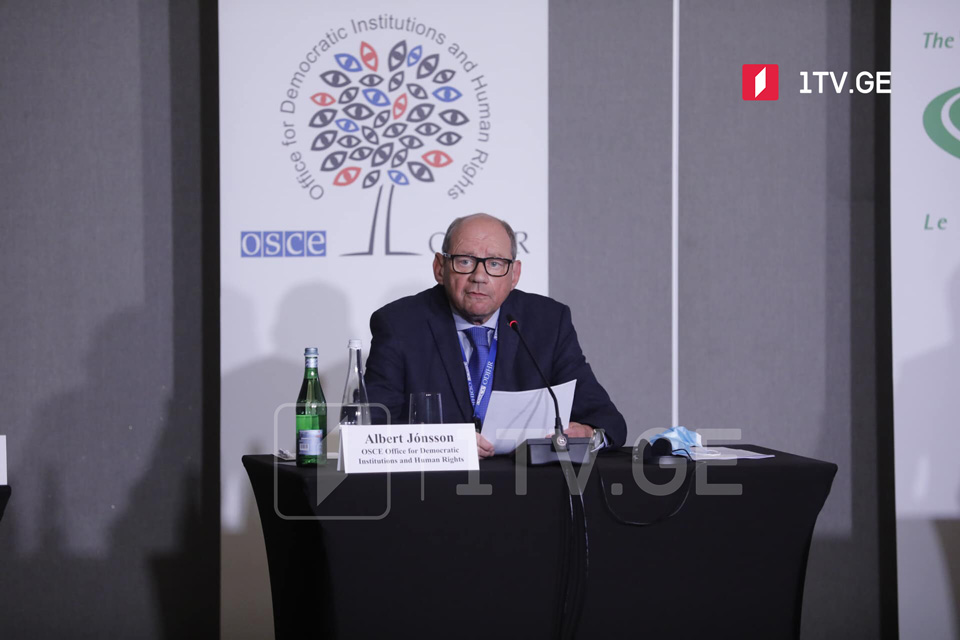OSCE/ODIHR: Second round of local elections to be generally well administered
“The second round of the local elections was generally well administered but continued polarization coupled with escalation of negative rhetoric adversely affected the process,” said Albert Jonsson, OSCE/ODIHR election observer mission head in Georgia.
According to Albert Jonsson, the candidates were generally able to campaign freely.
“The campaign was competitive and had a prominent national focus, overshadowing local issues. Candidates were generally able to campaign freely, but allegations of intimidation and pressure on voters persisted.
Sharp imbalances in resources, and an undue advantage of incumbency further benefited the ruling party and tilted the playing field. The transparency and accountability of campaign finance were reduced by insufficient oversight.
Private television channels continued to demonstrate a high level of polarization and clear bias, limiting the voters’ ability to make an informed choice,” he said.
The OSCE/ODIHR mission head said that the Election Day was generally calm and well administered.
“Election day was generally calm and well administered, with a few instances of confrontation between party supporters outside polling stations. Voting and counting were overall assessed positively despite some procedural issues, particularly during counting.
However, the persistent practice of representatives of observer organizations acting as party supporters, at times interfering with the process, and groups of individuals potentially influencing voters outside some polling stations were of concern,” he said.
The OSCE/ODIHR deployed an election observation mission to monitor the runoff municipal elections in Georgia. Chaired by Ambassador Albert Jonsson, the mission dispatched 150 observes to monitor Election Day. The mission has been in Georgia since August 24 to observe the whole election process.
